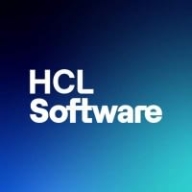


Tidal by Redwood and HCL Workload Automation compete in enterprise workload automation. Tidal by Redwood is noted for cost-effectiveness and strong customer service, while HCL Workload Automation is recognized for comprehensive features justifying its higher price.
Features: Tidal by Redwood offers robust scheduling and cloud capabilities, making it well-suited for hybrid environments. It excels in providing a user-friendly experience with seamless cloud integration. HCL Workload Automation delivers extensive job automation features, strong integration capabilities, and sophisticated event-driven processing, offering a more powerful automation suite for complex workflows.
Room for Improvement: Tidal by Redwood could enhance its advanced functionality and flexibility to compete with more sophisticated systems. It might also expand its feature set to handle more complex workflows. HCL Workload Automation exhibits a complex deployment process, suggesting a need for simplification. User training could be streamlined, and efforts to reduce initial complexity might improve accessibility.
Ease of Deployment and Customer Service: Tidal by Redwood is praised for straightforward deployment processes, minimizing downtime with responsive customer support. HCL Workload Automation, although comprehensive, has longer implementation times due to complexity, but is supported by in-depth technical assistance, giving Tidal an edge in service accessibility.
Pricing and ROI: Tidal by Redwood is recognized for lower upfront costs and quicker ROI, appealing to budget-conscious users. HCL Workload Automation requires a higher initial investment but offers significant ROI with extensive features and scalability, catering to enterprises with complex needs that prioritize long-term value over initial expense.
| Product | Market Share (%) |
|---|---|
| JAMS | 2.3% |
| Tidal by Redwood | 4.9% |
| HCL Workload Automation | 2.2% |
| Other | 90.6% |

| Company Size | Count |
|---|---|
| Small Business | 11 |
| Midsize Enterprise | 8 |
| Large Enterprise | 18 |
| Company Size | Count |
|---|---|
| Small Business | 3 |
| Midsize Enterprise | 6 |
| Large Enterprise | 38 |
JAMS is an automation and job scheduling solution designed for workflow optimization, catering to businesses large and small with flexible licensing and integration options.
Offering both Core and Advanced packages, JAMS supports a range of environments from small teams to large-scale operations. Its standout features include integration with platforms like PowerShell, SQL, and SAP, coupled with capabilities such as dependency management and natural language scheduling. JAMS simplifies job management, centralizes workflows, and boosts productivity with its robust automation features. Customizable workflows and insightful logging make it adaptable for diverse needs, supported by responsive customer service ensuring seamless operations.
What are JAMS's key features?In industries, JAMS is employed for automating workflows and managing batch jobs. Organizations utilize it for SSIS, SQL Server tasks, file transfers, and integrating with vendor systems, achieving efficient file automation and data management. Scheduler enables precise execution of thousands of tasks daily, enhancing operational efficiency.
HCL Workload Automation orchestrates complex processes, streamlining tasks across systems, improving efficiency for demanding environments.
Designed for robust workload automation, HCL Workload Automation integrates seamlessly into existing infrastructures, enabling precise control and management of workflows. Its scalability and adaptability suit enterprises seeking operational excellence, aligning processes with strategic goals. Users experience enhanced productivity through efficient job scheduling and workload execution, catering to enterprise demands.
What are the most important features?In healthcare, HCL Workload Automation efficiently manages patient data by integrating disparate systems, essential for timely treatment. In finance, it automates transaction processes securely, ensuring compliance with industry standards. In manufacturing, it optimizes supply chain operations by automating inventory management and production scheduling.
Tidal Software is a leading provider of enterprise workload automation solutions that orchestrate the execution of complex workflows across systems, applications and IT environments. With a comprehensive portfolio of products and services, Tidal optimizes mission-critical business processes, increases IT cost efficiencies and satisfies legal and regulatory compliance requirements. Hundreds of customers around the world count on Tidal for modernizing their workload automation and driving their digital transformation. Tidal Software is headquartered in Chicago with offices in Houston, London, Minsk, Belarus and Chennai, India. For more information, visit tidalsoftware.com.
We monitor all Workload Automation reviews to prevent fraudulent reviews and keep review quality high. We do not post reviews by company employees or direct competitors. We validate each review for authenticity via cross-reference with LinkedIn, and personal follow-up with the reviewer when necessary.